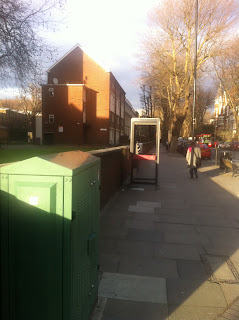Convenor: Tassos Stevens
Participants:
I didn't take names, but
here are some photos of us during Parts 2 and 3.
What
happened?
I called the session A
Surprise and then deliberately placed it as late as possible in the weekend. I
wanted to make an event of it and to talk about anticipation and expectations
that we all have around events, especially if they are billed as A Surprise.
I took notes of what people
said to me in between times to see what was going on in the collective brain of
the room as to what the session might be: many people wondered if I would be
surprised as well by what happened, and said it wouldn't be a surprise if I
knew; someone wondered if I'd be hiding in a cake to leap out; someone wanted
me to do a dance; many people just said 'exciting, don't tell me anything'.
I then managed to get
surprised rather spectacularly. The session was due to start at 3pm but I
managed (in the heat of a lemon joust) to lose all track of time and only
noticed at 3.08pm. I saw there were various groups gathered already and was
kicking myself that everyone had probably turned up excited and then left. It
was only when I saw Trumpton inside the very large circle of people that I
realised they were waiting for me. I was surprised, and sheepish, but maybe
this was the only way it could have started.
I announced to the group
that I had three parts in mind, but was open to how the group went so that I
could stay surprised myself. Actually, I only had half an idea for parts 2 and
3 but was fairly confident that the right ideas would turn up in time.
In part 1, we talked
about surprises in theatre, what works, what doesn't, what might be at play. I
took big headline notes and took pictures of them following. In some ways
though, the thing I am left with now is the insight that a surprise is a good
surprise if it leaves everyone involved (especially the audience) happy to tell
a good story about it. It's about a surprise present rather than a shock, where
we are all invested in a delightful outcome.
About 40 minutes in, I
sensed that we might start flagging so I offered part 2 or to continue with
part 1. Everyone wanted part 2. So I asked everyone if they liked to follow me
out of York Hall. This was the only part I'd planned. I was surprised by how
our departure itself became an event to everyone else in the room, and some
people got up and joined the train.
I stopped outside the
Hall to remind people that we might go some way and so it would be more
difficult to use their two feet to go to another group if they got bored. I
meant to stop at least one more time to give the same reminder but forgot. We
walked left down Old Ford Road and turned towards The Approach. As we turned
the corner, a man was quite brazenly pissing against a lamppost. A little
further down, a cat posed on a purple wheelie-bin. I think it would have been
popular if we'd gone to the pub but I had Victoria Park in mind, until a friend
wished we weren't going to the park. A church hall suddenly presented itself at
that moment so we walked into the yard and stopped.
Here was Part 3. We
talked about what we wanted to do now to make it A Surprise, and what we'd tell
people when we returned. We agreed to tell as much of the truth as possible and
to let people imagine what else we might have done, rather than trying to
manipulate too much. It was a very lovely discussion.
We did do something else
too, but we agreed that we wouldn't tell you that.
On the way back, I was at
the back of the line. When I saw the middle of our group pass a phone box -
which I'd recce'd on the hoof to get the number and noting that the glass was
broken so you could hear it ring - then I made it ring. It was answered in a
flash.
This was a delightful
session, and my sincere thanks to everyone who took part.







